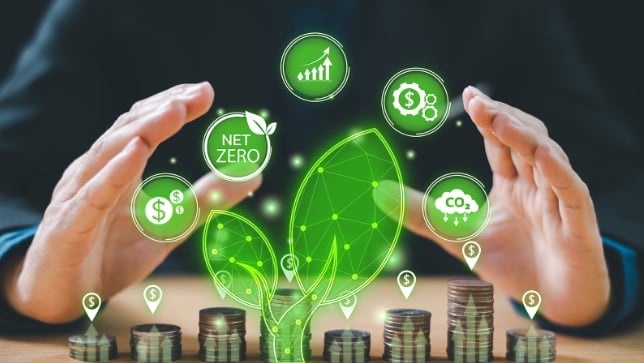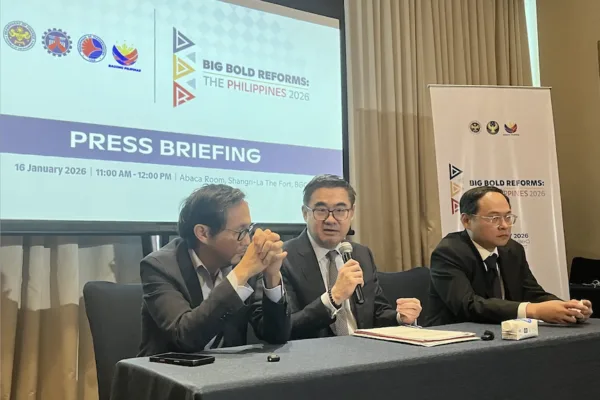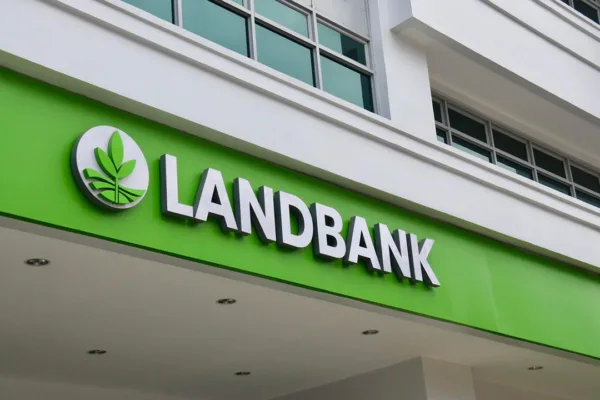by Edielyn Mangol, Reporter
The Philippines faces growing climate threats such as typhoons, flooding, and rising sea levels that endanger millions of livelihoods and local economies. This urgent reality demands innovative financial solutions focused on sustainability and resilience.
Emerging to meet this need is the green money sector, which combines advanced financial technology with environmental goals. It facilitates investment of green money in renewable energy, sustainable agriculture, and climate adaptation projects through digital platforms and data-driven tools.
By reducing obstacles to financial services and providing clear ways to measure impact, green fintech is serving as a powerful catalyst for green finance in the Philippines. This growing movement is supporting underserved communities in strengthening their resilience and promoting sustainable development, playing a vital role in advancing climate action and boosting economic opportunities.”
Fintech platforms enabling sustainable investing of green money
Fintech companies in the Philippines are leveraging digital platforms to democratize access to sustainable investment opportunities. These platforms facilitate the issuance and trading of green financial products such as green bonds and green equity, which channel capital into environmentally friendly projects.
For instance, the Philippine Securities and Exchange Commission (SEC) recently introduced Green Equity Guidelines that require companies issuing green equity to derive at least 50% of their revenues and investments from environmentally sustainable activities, with mandatory disclosure and verification of environmental performance indicators.
Fintech platforms play a crucial role in ensuring transparency and accessibility, allowing green money investors — both retail and institutional — to support projects aligned with the country’s sustainability goals.
Facilitating green bonds and sustainable finance
The Philippine government, through the Bureau of Treasury, has recently established a sustainable finance framework to issue green, social, and sustainability bonds aimed at funding projects with green money that address climate change and promote sustainable growth.
Fintech innovations are instrumental in streamlining the issuance process, enhancing investor engagement, and ensuring compliance with international best practices on transparency and impact reporting. This synergy between fintech and public finance is vital to scaling up green money investments and attracting private capital necessary to meet the Philippines’ ambitious climate commitments, including its pledge to reduce greenhouse gas emissions by 75% over the next decade.

Building on this foundation, fintech companies are introducing cutting-edge solutions such as blockchain-based platforms and AI-powered analytics to further enhance the efficiency and transparency of sustainable bond markets. These technologies enable real-time monitoring of fund allocation and environmental impact, reducing information asymmetry and increasing investor confidence.
Additionally, digital marketplaces are emerging to connect issuers of green bonds with a broader base of retail and institutional investors, democratizing access to sustainable finance. By facilitating seamless integration of environmental, social, and governance (ESG) data into investment decision-making, fintech is empowering stakeholders to make more informed choices that align with national sustainability priorities.
This innovative collaboration between technology and public finance not only accelerates capital flow into renewable energy, climate adaptation, and conservation projects but also strengthens the Philippines’ resilience against the escalating risks posed by climate change.
Innovative Climate Risk Assessment and Renewable Energy Financing
Beyond investment facilitation, fintech is pioneering solutions for climate risk assessment and renewable energy financing. FintechAlliance.ph highlights the sector’s capability to collect and analyze climate-related data, which is crucial for accurately valuing climate risks and informing green financing decisions. This data-driven approach helps financial institutions integrate environmental, social, and governance (ESG) considerations into their risk management frameworks, as mandated by the Bangko Sentral ng Pilipinas (BSP)’s sustainable finance guidelines.
On the renewable energy front, startups like Helios are transforming access to solar power through innovative financing models. Helios’ solar mortgage programme offers affordable loans with interest rates significantly lower than traditional bank loans, enabling Filipino households to adopt solar energy and reduce electricity costs.
By partnering with major banks and solar installers, Helios exemplifies how fintech can bridge the gap between clean energy technology and consumers, accelerating the transition to a low-carbon economy.
Green money effect: Driving National Sustainability Goals
The role of fintech in the Philippines’ sustainability agenda extends beyond finance. By reducing paper transactions and promoting digital solutions, fintech contributes to lowering the environmental footprint of financial services. Moreover, fintech-enabled green finance supports the country’s commitments under the Paris Agreement and the United Nations Sustainable Development Goals (SDGs), fostering climate adaptation and resilience in vulnerable communities.
The Bangko Sentral ng Pilipinas recognizes climate change as a significant threat to financial stability and is actively collaborating with fintech innovators to embed sustainability into the financial system. This partnership is critical as the Philippines navigates the dual challenge of economic development and climate resilience.
The rise of Green Fintech in the Philippines is driving a transformative shift toward sustainability and climate resilience. Through the enablement of green bonds, transparent sustainable investment platforms, advanced climate risk analytics, and financing for renewable energy initiatives, fintech is reshaping the financial sector while supporting the country’s environmental objectives.
As climate challenges grow more urgent, the fusion of financial technology and green finance will play a crucial role in securing a resilient and sustainable future for the Philippines.








